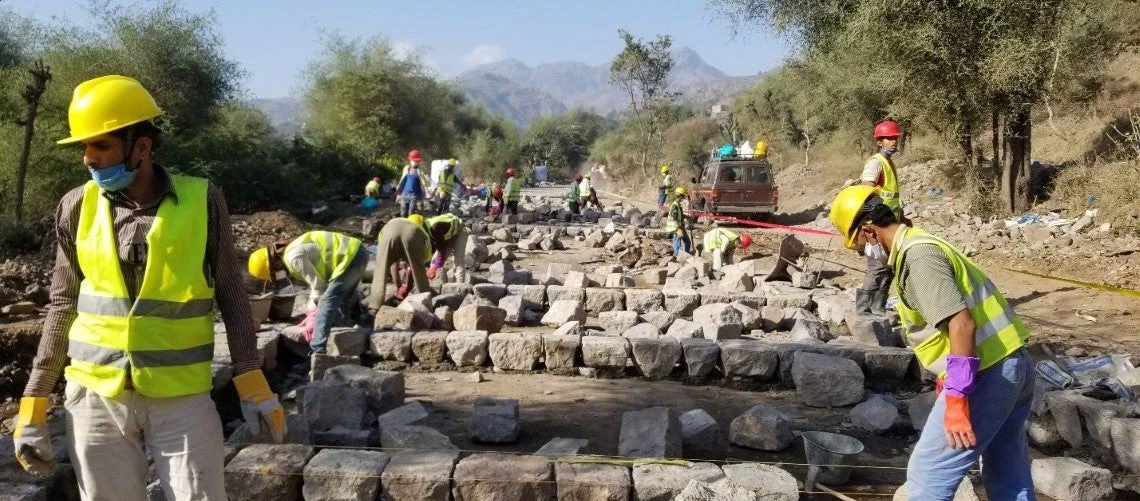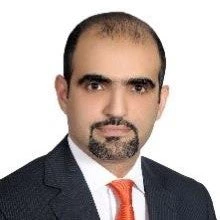 عمال محليون في أحد مواقع العمل التابعة للصندوق الاجتماعي للتنمية في اليمن.
عمال محليون في أحد مواقع العمل التابعة للصندوق الاجتماعي للتنمية في اليمن.
The conflict in Yemen, which started in March 2015, has affected the capacity of local institutions to enforce laws, including laws related to environmental protection and management. The private sector was also hit: Environmental consulting firms, individual consultants, and universities providing resources and capacity for Yemen to safeguard project operations have all been affected.
Before the conflict, Yemen had the legal and administrative framework for environmental protection, but its systems for environmental assessments and management have since been substantially affected. The lack of work has caused many experts in the public and private sectors to leave Yemen in search of more opportunity and better livelihoods elsewhere. In a place where people struggle to find jobs, no one has been able to give protecting the environment enough attention, even aspects of it that affect worker and community health.
Despite the conflict, the World Bank has continued to support Yemen and managed to maintain environmental standards for the projects it finances in the country. Guided by its framework on Environmental and Social policies and standards, the Bank has partnered with other international organizations to work closely with local institutions to create systems at the national and regional levels to apply environmental safeguards.
World Bank teams and UN agencies have been working together through two local agencies, the Social Fund for Development (SFD) and Public Works Project (PWP), since 2016. These agencies have started to build their institutional capacity to improve their own environmental and social measures, including those on Occupational Health and Safety (OHS). More than 2,301 technical and consultant engineers, 1,094 contractors, 524 project officers, and 39,000 site workers have been trained by SFD to manage, implement, and monitor environmental and social standards during project operations.
The PWP began to raise standards by establishing an autonomous Environmental and Social Safeguards Unit in 2018 to cover environmental, social, gender, and OHS issues, and by placing individuals to act as focal points for these at each of its 10 branches. In all, more than 163 staff, 953 site engineers, 246 site technicians, 345 contractors, 64 community committees, and about 10,000 workers have been trained to manage environmental and social aspects of a project and apply their guidelines.
This has made an impact, according to Abdul-Hamid Jaber, a Yemeni contractor. "The importance of occupational health and safety was unappreciated by the majority of contractors," he said. The PWP’s training and awareness sessions changed that. "You can see this at the worksites, with workers wearing protective equipment. This was not the case before."
Another contractor, Al-Wadi'ay, said PWP has created a situation where contractors now interact and compete with their peers to apply OHS standards. This had not existed in the past, but over time, it has become part of a contractor’s way of doing business and gaining a competitive advantage.
The Yemen Emergency Crisis Response Project (ECRP) is among the projects in the overall development program supported by the Bank that have helped build up safeguards capacity in local institutions. It provides short-term employment as well as access to services for the most vulnerable. It works to generate short-term income, improve youth skills, and provide employment opportunities. It also works to restore community assets that provide socio-economic benefits, to sustain and scale up the business operations of financial service providers and micro, small, and medium enterprises, and to ensure the oversight, reporting, and quality of projects.
Community workers have been employed through cash-for-work programs in over 22 of Yemen’s governorates through the ECRP. Building local capacity could benefit more agencies in other critical sectors. Preserving these sectors, and strengthening them, prepares Yemen for the recovery and reconstruction that will one day take place after conflict, and makes sure that the development projects and interventions that the Bank supports, both today and in the future, are sustainable and environment-friendly.
Related projects:


Join the Conversation